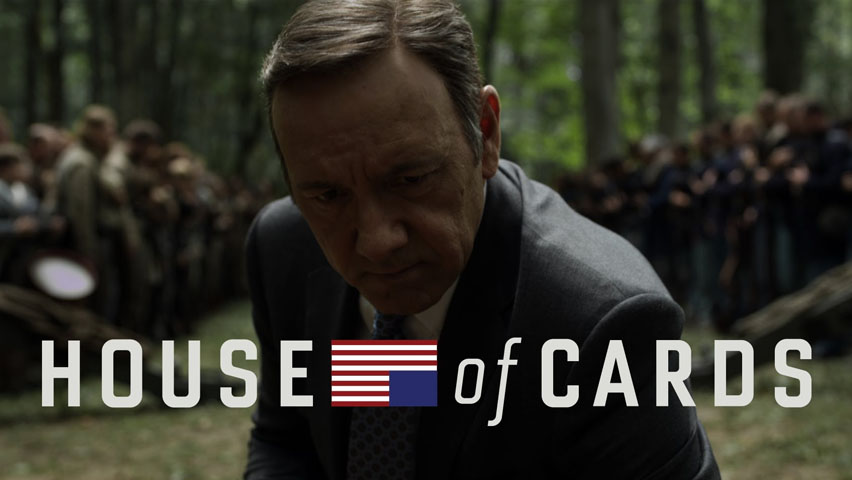
The success of Netflix through big data

The third series of the popular Netflix original TV show House of Cards streams tomorrow. Fans have been counting down to 27th February for weeks. However, based on Netflix’s use of big data, did we ever have a chance to dislike the show?
Netflix's use of big data
The streaming giant spends approximately $3 billion a year on TV and film rights, with about $300 million being used for making Netflix original shows. And, unlike traditional media outlets who had to trust to limited market research numbers and instincts, Netflix uses and analyses the viewing habits of its 44 + million subscribers worldwide to customise the customer experience, but more importantly, to land on a hit show. Netflix uses and analyses the viewing habits of its 44 + million subscribers worldwide. Netflix collects Big Data to understand how its users behave on the site and what their preferences are. The company take into consideration: what their subscribers’ watch, when they watch, where they watch, what they search, the ratings they give …and the list goes on and on. Based on all this data they collect, Netflix could safely determine that certain ingredients would lead to the phenomenal success of House of Cards. A healthy amount of subscribers streamed David Fincher’s ‘The Social Network’ on the site and watched the film from beginning to end without leaving. Also, Kevin Spacey films on Netflix have, on average, 5 star ratings from customers. Finally, the original British version of House of Cards was extremely popular with Netflix users. And so the company bought the licence to the show without even watching the pilot.House of Cards ads
After having dedicated $100 million of budget to acquiring the show, Netflix again turned to Big Data to promote the show. Netflix created 10 different advertisements to feature on the site. [caption id="attachment_961" align="alignnone" width="852"] An example of one of the trailers Netflix used[/caption]
For customers who had previously watched “chick flicks," Netflix pushed Robin Wright and Kate Mara’s strong female characters in the ads. Additionally, when die-hard Kevin Spacey fans (those who had rated his films highly) logged into their Netflix accounts, they saw advertisements that introduced Kevin Spacey’s character. And so forth, until all subscribers were segmented into 10 large groups and received their own customised House of Cards ad.
An example of one of the trailers Netflix used[/caption]
For customers who had previously watched “chick flicks," Netflix pushed Robin Wright and Kate Mara’s strong female characters in the ads. Additionally, when die-hard Kevin Spacey fans (those who had rated his films highly) logged into their Netflix accounts, they saw advertisements that introduced Kevin Spacey’s character. And so forth, until all subscribers were segmented into 10 large groups and received their own customised House of Cards ad.
Criticism
However, despite the popularity of Netflix with users across the globe, the company and its use of Big Data has received its fair share of criticism. When Netflix “recommends” content to its subscribers to watch, many wondered what stopped Netflix from using the algorithm to push Netflix Original TV shows over the other programmes streamed on the site? Additionally, some critics have suggested that the TV and Film industries will lose their creative flair in favour of using Big Data to create hit shows. Other bits of information that Netflix gathers on consumers are called "events," which include:- When you pause, rewind or fast forward
- What day you watch content--Neflix has discovered that people watch TV shows during the week and movies on the weekend
- When you pause and leave content--and whether you return to finish the show or film
- Browsing and scrolling behaviour
- Searches--globally there are 3million per day